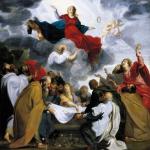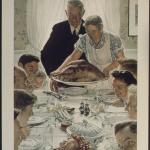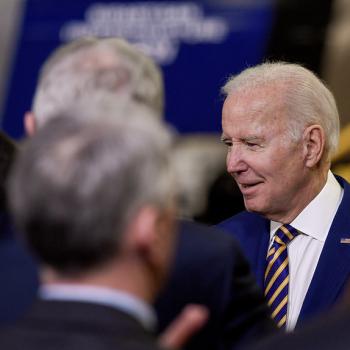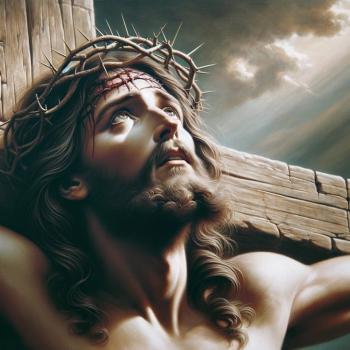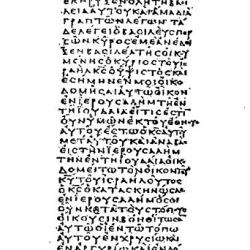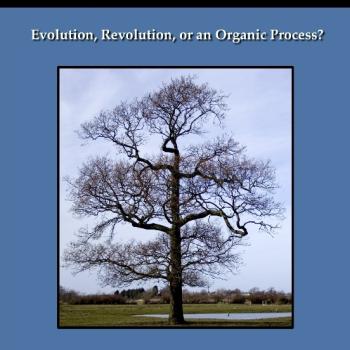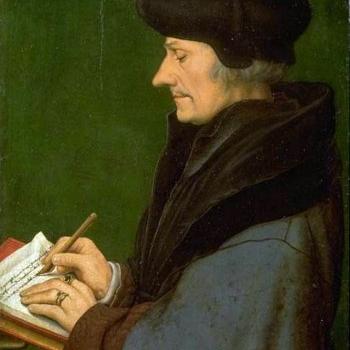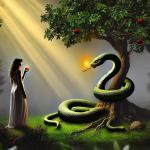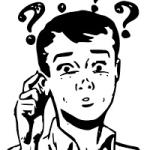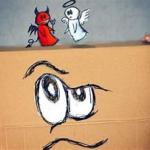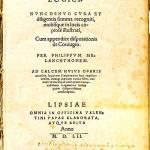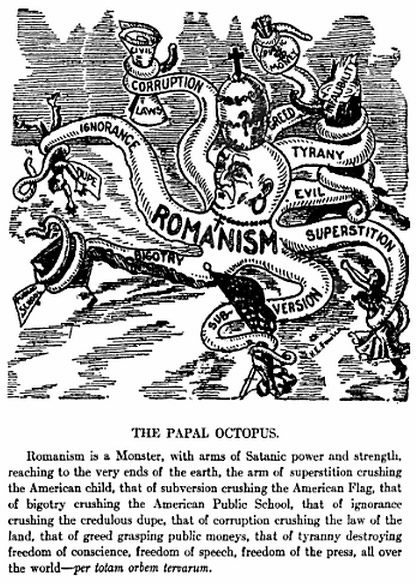
* * *
It was stated that the term has no meaning, is irrational and strictly prejudicial, and that no dictionary or scholarly reference work can be appealed to as a source for its use. It was supposedly invented by Catholic apologists, and Protestants (so I was “informed”) rarely, if ever, use the term. I was challenged to do a search on Google to see what I could find. So I did. I also searched many of the books in my library: works of Protestant church history and sociology of religion. The results were most enlightening (but not surprising at all to me). Now I shall cite these many reputable Protestant and secular scholarly sources which blatantly contradict the cynical, thoroughly wrongheaded account of things, outlined above (my bolding for “anti-Catholic[ism]” throughout):
1. Encyclopedia Britannica, 1985 ed., Micropedia, Vol. 6, 918, “Know-Nothing Party”:
U.S. political party that flourished in the 1850s . . . an outgrowth of the strong anti-immigrant and especially anti-Catholic sentiment that started to manifest itself during the 1840s.
2. Dictionary of Christianity in America, ed. Daniel G. Reid, Downers Grove, Illinois: InterVarsity Press, 1990, “Nativism,” 801:
. . . it’s most powerful strain is anti-Catholicism . . . Although nativism and anti-Catholicism are not synonymous (indeed, Catholics have been nativists), the two are usually linked and anti-Catholicism has tended to dominate other nativist traditions.
*
Outbursts of anti-Catholic nativism have occurred in U.S. history whenever conditions of social and economic stress have conspired to arouse the deep-rooted suspicion that Catholicism is not compatible with American democratic institutions . . . After the colonial period, three main waves of anti-Catholic nativism surged through the land . . . .
*
Anti-Catholic propaganda during this period included bogus tales of sacerdotal lust and infanticide in Maria Monk’s Awful Disclosures of the Hotel Dieu Nunnery in Montreal (1836) and W. C. Brownlee’s biweekly American Protestant Vindicator (1834-1842).
. . . The rural Midwestern American Protective Association (APA) revived anti-Catholic feeling by blaming hard tomes on Irish Catholic labor leaders and claiming to have uncovered a secret papal plot for Catholic rebellion and the massacre of American Protestants . . .
. . . New York Governor Alfred E. Smith would still feel residues of anti-Catholicism in his 1924 and 1928 bids for the presidency, During the 1950s, Senator Joseph McCarthy, himself a latter-day nativist, occasioned new manifestations of anti-Catholicism . . .
*
To say that the election of John F. Kennedy in 1960 and his subsequent assassination had destroyed anti-Catholicism as a force in American life would probably be overly optimistic. The endurance of phenomena such as Jack Chick Publications suggests that, given sufficient stimuli, anti-Catholic nationalism might resurface.
[cites in bibliography:
R. Bellah and F. Greenspahn, Uncivil Religion: Interreligious Hostility in America (1986)
R. A. Billington, The Protestant Crusade, 1800-1860, A Study of the Origins of American Nativism (1952: I have this book in my library) ]
3. Page Smith, The Rise of Industrial America, Vol. 6 of 8 of a series on American history, New York: McGraw-Hill Book Co., 1984; Index: “Catholic Church: anti-Catholic hostility”: 533, 580-586, 604. Smith is one of the most highly respected historians of America.
The American Protective Association, an anti-Catholic nativist organization, . . . (p. 533)
. . . If non-Catholic Americans were bitterly divided on scores of issues . . . they were as one in their fear and hatred of the Catholic Church and, generally speaking, of Catholics in the abstract, if not always in the particular. Pious Protestants still thought of the Pope as the Antichrist, the enemy of the faith, the Beast of the Apocalypse. (p. 580)
The hostility of non-Catholic Americans toward their Catholic compatriots remained a conspicuous feature of American life. Typical of the anti-Catholic books that abounded was Romanism and the Republic by a Methodist minister and educator named Leroy Vernon . . . The situation, Vernon warned his readers, was desperate: . . . “in all its horrors, the beastly immorality of priests and people, of Popes, Cardinals and bishops, of men, women, and children, as the result of this wicked, ungodly, unscriptural, and unchristian system of auricular confession.”
In the year of the Chicago Exposition [1893] anti-Catholic feeling manifested itself with startling ferocity . . . Anti-Catholic secret societies were formed . . .
The anti-Catholic societies used the forged “instructions” as the basis for a campaign to remove Catholics from private employment and public office. (pp. 583-585)
4. Will Herberg, Protestant Catholic Jew, Garden City, New York: Doubleday Anchor Books, rev. ed., 1960; Herberg is Jewish, and this is a classic in the field of sociology of religion. Index: “Anti-Catholic prejudice: 140-142, 232-238.
. . . repeated outbursts of anti-Catholic rancor that punctuated the three decades before the Civil War, culminating in the Know-Nothing movement . . . Anti-Catholic agitation was renewed in the early 1850s . . . on “Bloody Monday” at Louisville, Kentucky [1855], nearly a hundred Catholics were slain and scores of houses burned to the ground [in the famous Detroit riots of 1967, 43 were killed]. By this time anti-Catholicism had become a leading principle of the so-called Know-Nothing Party . . . the anti-Catholic movement was resumed in the latter part of the century. The Anti-Catholic movement before the Civil War was essentially nativist. (pp. 140-142)
. . . militant secularist anti-Catholicism that is associated with the recent work of Paul Blanshard [American Freedom and Catholic Power, Beacon: 1949]. (p. 235)
. . . theologically concerned Protestants find it difficult to go along with the kind of negative “anti-Romanism” current in many Protestant circles . . . (p. 238)
5. Kenneth Scott Latourette [one of the most respected Protestant historians (Baptist); professor at Yale and president of the American Historical Association], Christianity in a Revolutionary Age, Vol. 3 of 5: The 19th Century Outside Europe, New York: Harper & Row, 1961, rep. 1970 by Zondervan, Grand Rapids, Michigan; p. 101:
. . . the anti-Catholic agitation — Nativism and the Know-Nothing movement– . . .
6. Martin Marty [widely respected Protestant Church historian, University of Chicago], Pilgrims in Their Own Land: 500 Years of Religion in America, New York: Penguin Books, 1984. Index: “anti-Catholicism: 40, 85, 141-143, 244, 273-276.
John Foxe’s . . . The Book of Martyrs, was a New England best-seller. It fueled the anti-Catholic fires in many Protestant hearts during the Age of Exploration . . . [the illustration on the title page] shows God . . . receiving trumpeted praise from burning Protestant martyrs while the devils look down on a Roman Catholic priest saying Mass. (p. 40)
. . . in 1688, anti-Catholics in and around Maryland . . . (p. 85)
Anti-Catholicism was the sport of the mob as well as the device of leaders . . . enlightened public figures like Benjamin Franklin sounded much like Samuel Adams. Only George Washington was moderate. (p. 142)
Anti-Catholicism did not come to an end because of prudence and politeness to France, and it returned in full force sixty years later in the face of numerous Catholic immigrants. (p. 143)
. . . in 1844, America was in turmoil over anti-Catholic riots in Philadelphia . . . (p. 244)
Anti-Catholic memories were long and hatreds were deep . . . anti-Catholicsin America conveniently portrayed the church as a juggernaut poised to crush the United States . . . the editor of the Protestant Home Missionary picked up the cry for the West, where was to be fought a great battle “between truth and error, between law and anarchy — between Christianity . . . and the combined forces of Infidelity and Popery” . . . Samuel F.B. Morse, both the inventor of the telegraph and the noisiest anti-Catholic around . . . (p. 273)
. . . strands of old-style anti-Catholicism . . . (p. 275)
7. Martin Marty, Modern American Religion, Vol. 1: The Irony of it All: 1893-1919, Chicago: Univ. of Chicago Press, 1986. Index: “Anti-Catholicism: 131, 134-136, 140, 155, 277, 307.
. . . anti-Catholicism as a revival of Nativism. (p. 131)
Anti-Catholicism and other anti’s did not, of course, die out . . . anti-Catholicism was durable . . . Raw anti-Catholicism had to wait for the 1920s to gain its hearing . . . . (p. 134)
. . . many non- and anti-Catholics . . . anti-Catholic prejudice . . . anti-Catholic publications in America . . . Anti-Catholicism was on the wane . . . Few anticipated the anti-Catholicism of a revived Ku Klux Klan in the 1920s. (pp. 135-136)
. . . Chancellor Otto von Bismarck’s Kulturkampf, an anti-Catholic “battle for civilization.” (p. 140)
Even Grose, however, the least anti-foreign and anti-Catholic among Protestant experts in this field, kept his reservations about Catholics who stayed Catholic. (p. 155)
The Southern Baptists . . . vehemently rejected the unity movement entirely . . . council leaders often sounded and were anti-Catholic . . . (p. 277)
The Christian and Missionary Alliance was one of scores of journals whose editors kept up the anti-Catholic theme. “God is stronger than either the Romish Church or the Catholic powers of Europe.” (p. 307)
8. William G. McLoughlin [professor of history at Brown University], Revivals, Awakenings, and Reform, Chicago: Univ. of Chicago Press, 1978. Index: “Anti-Catholicism: 3-4, 146, 149. See also Know-Nothings.”
9. Mark Noll [well-known evangelical writer and historian], “The History of an Encounter: Roman Catholics and Protestant Evangelicals,” in Charles Colson and Richard John Neuhaus, editors: Evangelicals and Catholics: Toward a Common Mission, Dallas: Word Publishing, 1995.
After the Second World War, evangelical publishing still maintained a steady beat of anti-Catholic polemic . . . Evangelical publishers also reissued classic anti-Catholic works from the previous century including Charles Chiniquy’s Fifty Years in the Church of Rome [Grand Rapids, Michigan: Baker Book House, 1961] . . . These attitudes toward Catholicism, which evangelicals maintained with something close to unanimity into the 1960s, reached back to the middle decades of the sixteenth century. (pp. 84-85)
Protestant anti-Romanism was a staple of the American theological world . . . anti-Catholic literature was a well-entrenched theological genre. Ray Allen Billington’s study [The Protestant Crusade, 1800-1860, A Study of the Origins of American Nativism , 1952] of the six antebellum decades included a bibiography of nearly forty pages devoted exclusively to anti-Catholic periodicals, books, and pamphlets. (p. 87)
. . . conservative Presbyterian theologian Charles Hodge, brought down great wrath upon his head for defending the validity of Catholic baptism [as John Calvin himself had done], even though that defense fully maintained Protestant arguments about the deviance of Rome. (p. 88)
. . . evangelical anti-Catholicism was given new life by the rising current of Catholic immigration into the United States. Protestant writing against Catholicism retained the historical theological animus, but it was almost always a political expression as well. (p. 90)
In the two decades before the Civil War, anti-Catholicism was a staple in shaping the political actions of many Protestants in the North as well as some in the South. (p. 91)
. . . anti-Catholicism was sparked especially by the belief that the Catholic hierarchy discouraged, or even prohibited, the use of Scripture among the laity. (pp. 91-92)
10. Thomas A. Askew [professor of history and chairman of the department at Gordon College] and Peter W. Spellman, The Churches and the American Experience: Ideals and Institutions, Grand Rapids, Michigan: Baker Book House, 1984, p. 113:
Anti-Catholicism in America was never purely religious, for social and economic factors aggravated suspicion of the stranger.
11. David O. Moberg [professor of sociology at Marquette University], The Church as a Social Institution: The Sociology of American Religion, Grand Rapids, Michigan: Baker Book House, 2nd ed., 1984. Index: “Anti-Catholicism: 286, 300-316, 329, 331, 447-448, 455.
The strength of fundamentalism in the 1920s resulted partially from an unofficial, informal alliance with exploiters of anti-Semitic and anti-Catholic feelings. (p. 286)
Bigotry, especially by anti-Catholics, has been so common that any criticism of Catholicism is likely to be labeled by intellectuals as well as by pro-Catholics as intolerant and unfair . . . Historical accounts of American anti-Catholicismrarely recognize sufficiently the contemporary stimuli that contributed to its periodic outbreaks . . . Current interfaith quarrels indeed are partly a continuation of irrational past struggles, but the tensions have a continuing social, psychological, and ideological basis which must not be overlooked. (pp. 300-301)
In 1928 the Democratic candidate, Alfred E. Smith, was defeated partly because of anti-Catholicism. (p. 302)
Many anti-Catholics are convinced that long-range plans of the Catholic Church include repeal of the First Amendment . . . (p. 304)
Future sociologists may devote as much attention to anti-Protestantism as to anti-Catholicism and anti-Semitism. (p. 311)
The Protestant Irish from Ulster were among the most fervent anti-Catholics a century ago. (p. 312)
Parochial schools and Catholic welfare initially were results of anti-Catholicprejudice . . . (p. 313)
Christian controversy with science has not involved Catholics alone, as anti-Catholics sometimes imply. (p. 331)
12. James Davison Hunter [one of the leading Protestant sociologists of religion of our time], Culture Wars: The Struggle to Define America, New York: HarperCollins, 1991. Index: “Anti-Catholicism: 35-39, 69, 71, 87, 102.
Understanding the American experience evan as late as the nineteenth century requires an understanding of the critical role played by Anti-Catholicism in shaping the character of politics, public education, the media, and social reform . . . Catholics were regarded by Protestants as heretics who had perverted the true faith. (p. 35)
. . . anti-Catholicism in America reached something of an apex in the nineteenth century. For one, many of the major urban daily newspapers displayed a prominent anti-Catholic prejudice: the Chicago Tribune, for example, played a significant role in inciting anti-Catholic agitation throughout the 1840s and 1850s . . . Between 1800 and 1860 . . . American publishing houses published more than 200 anti-Catholic books . . . Anti-Catholicism also ignited the great school wars of the mid-nineteenth century . . . (p. 36)
Yet perhaps the most vociferous expression of anti-Catholicism came from anti-Catholic societies . . . and anti-Catholic political parties. (p. 37)
. . . anti-Semitism was never greatly politicized in the way that anti-Catholicismhas been. (p. 38)
. . . although much of the anti-Catholic hostility was born out of economic rivalry and ethnic distrust, it took expression primarily as religious hostility — as a quarrel over religious doctrine, practice, and authority. (p. 71)
13. Ray Allen Billington, The Protestant Crusade, 1800-1860, A Study of the Origins of American Nativism, New York: Macmillan, 1938; rep. Chicago: Quadrangle Books, 1952. This entire book is about anti-Catholicism, and is often cited by scholars studying the subject as a classic. The author does not appear to be a Catholic. On the back cover, it is described as a “full account of the development of anti-Catholic, anti-foreign feelings in the United States.” It would be futile to cite all the references to anti-Catholicism in it, so I will simply cite two of the chapter headings: “The Roots of Anti-Catholic Prejudice” (chapter one), and “The Literature of Anti-Catholicism” (chapter fourteen).
14. Paul Blanshard [prominent and influential secular anti-Catholic], American Freedom and Catholic Power, Boston: Beacon Press, 2nd ed., 1958, pp. 12-13:
Anti-Catholic fanatics in the forties and fifties of the last century caricatured priests, burned a few convents, and spread wild rumors that Catholics were plotting to capture the country by armed rebellion . . . Anti-Catholic political parties appeared in several states and even anti-Catholic candidates for President . . .
15. Charles L. Sewrey, “Historians and Anti-Catholicism,” Christian Century, 73 (March 14, 1956), 333-335.
16. Robert McAfee Brown [Presbyterian], “Types of Anti-Catholicism,” Commonweal, 63 (Nov. 25, 1955), 193-196.
17. Washington Gladden, “The Anti-Catholic Crusade,” Century Magazine, XLVII (March, 1894), 789-795.
18. J. E. Graham, “Anti-Catholic prejudice, Ancient and Modern,” Ecclesiastical Review, LIII (1915), 282-298.
19. E. R. Norman, Anti-Catholicism in Victorian England, New York: Barnes and Noble, 1968.
20. J. R. (Jim) Miller, “Anti-Catholic Thought in Victorian Canada,” Canadian Historical Review, 66, 4, Dec. 1985, 474-94
21. Jim Miller, “Bigotry in the North Atlantic Triangle: Irish, British and American Influences on Canadian Anti-Catholicism, 1850-1900,” Studies in Religion / Sciences Religieuses, 16, 3, 1987, 289-301.
22. Jim Miller, “Anti-Catholicism in Canada: From the British Conquest to the Great War,” in T. Murphy and G. Stortz, eds., Creed and Culture: The Place of English-Speaking Catholics in the Canadian Mosaic, 1750-1930, (Montreal: McGill-Queen’s University Press 1993), 25-48.
23. Arthur F. Marotti, editor, Catholicism and Anti-Catholicism in Early Modern English Texts, Basingstoke, Hampshire and London: Macmillan and New York: St. Martin’s Press, 1999.
24. Brown, Cedric C. “‘This Island’s Watchful Centinel’: Anti-Catholicism and Proto-Whiggery in Milton and Marvell,” English Literature 1650-1740, ed. Steven N. Zwicker, Cambridge, England: Cambridge UP, 1998: 165-184.
25. Steve Bruce, No Pope of Rome; Anti-Catholicism in Modern Scotland, Edinburgh: Mainstream Publishing Company, 1985.
26. Marius M. Carriere, Jr. “Anti-Catholicism, Nativism, and Louisiana Politics in the 1850s,” Louisana History, 35(4), 1994, 455-474.
27. John D. Brewer and Gareth I. Higgins, Anti-Catholicism in Northern Ireland, 1600-1998: The Mote and the Beam, Basingstoke: Macmillan, 1998.
28. Colin Haydon, Anti-Catholicism in Eighteenth-Century England, c.1714-80 : A Political and Social Study, Manchester: 1993.
29. Cedric C. Brown and Arthur Marotti, eds., Texts and Cultural Change in Early Modern England, Basingstoke: Macmillan, 1997; includes Marotti’s chapter: “Southwell’s Remains: Catholicism and Anti-Catholicism in Early Modern England.”
30. Deborah Keith Doolittle, The Nun and Anti-Catholicism in Antebellum America, 1990.
31. Philip Jenkins, Hating the Church: Anti-Catholicism in Modern America, ISBN: 0195154800; (May 2003).
32. D. G. Paz, Popular Anti-Catholicism in Mid-Victorian England, Stanford University Press, 1992.
33. Francis D. Cogliano, No King, No Popery: Anti-Catholicism in Revolutionary New England, Greenwood Publishing Group 1996.
34. Jody M. Roy, Rhetorical Campaigns of the 19th Century Anti-Catholics and Catholics in America, Edwin Mellen Press, 1999.
35. Les Wallace, The Rhetoric of Anti-Catholicism: The American Protective Association, 1887-1911 (European Immigrants and American Society), Garland Pub., 1990.
36. Donald L. Kinzer, Episode in Anti-Catholicism: The American Protective Association, University of Washington Press, 1964.
37. Frank H. Wallis, Popular Anti-Catholicism in Mid-Victorian Britain, Edwin Mellen Press, 1993.
38. Robert J. Klaus, The Pope, the Protestants, and the Irish: Papal Aggression and Anti-Catholicism in Mid-Nineteenth Century England, Garland Pub., 1988.
39. J. R. Wolffe, “Change and Continuity in British Anti-Catholicism, 1829-1982,” in F. Tallett and N. Atkin, editors, Catholicism in Britain and France since 1789, 1993.
40. Christian Research Institute, founded by Protestant anti-cult researcher Dr. Walter Martin; review of Karl Keating’s Catholicism and Fundamentalism, in the Christian Research Journal, by Kenneth R. Samples (current President of CRI is Hank Hanegraaff, the “Bible Answer Man”):
How should evangelicals view Roman Catholicism? This is an extremely controversial question, and often emotionally charged. The spectrum of opinion among conservative Protestants generally ranges from those who see the Catholic church as foundationally Christian (but with many doctrinal deviations), to those who dismiss Catholicism outright as an inherently evil institution. It would seem, however, that those of the latter persuasion (“anti-Catholics“) are in the ascendancy. Chick Publications, Alberto Rivera’s Antichrist Information Center, and the Alamo Christian Foundation are three rabidly anti-Catholic organizations which accuse the Roman church not only of promoting false doctrine but of causing many of the social and political ills of our time.
In the midst of this growing anti-Catholic sentiment, a strong Catholic response has come forth in Catholicism and Fundamentalism by Karl Keating, a lay Catholic apologist. Keating’s book is an extensive apologetic work (360 pages) which attempts to answer basic challenges to Catholicism leveled by anti-Catholic fundamentalists. In a broader scope, it attempts to present and defend those distinctive Catholic doctrines which fundamentalists most commonly object to. Keating writes froman orthodox Catholic position, accepting both the authority of the church and the integrity and inspiration of the sacred text.
In his preface, Keating clarifies that his book is not a thorough evaluation of Protestant fundamentalism per se, but is rather focused on that subset of fundamentalism which is anti-Catholic, particularly the anti-Catholic organizations.
. . . he does a good job of defining Catholic doctrine and giving thoughtful answers to the often simplistic anti-Catholic objections . . .
*
An additional criticism is that the book does not always distinguish carefully enough between anti-Catholics and those who are merely critical of Catholic doctrine. If this distinction is not made, then all Protestants become anti-Catholic. By the same reasoning, all Catholics become anti-Protestant. In Keating’s defense, however, I do believe he normally makes this distinction . . .
41. Reinhold Niehbuhr, well-known Lutheran theologian, Essays in Applied Christianity, New York: Meridian, 1959, 220-221:
The acrimonious relations between Catholics and Protestants in this country are scandalous. If two forms of the Christian faith, though they recognize a common Lord, cannot achieve a little more charity in their relations to each other, they have no right to speak to the world or claim to have any balm for the world’s hatreds and mistrusts. The mistrust between Catholics and Protestants has become almost as profound as that between the West and Communism . . . A good deal of Protestantism is little more than anti-Catholicism.
42. Roland Bainton, in the most famous biography of Martin Luther, Here I Stand, New York: Mentor Books, 1950, p. 209, referring to the Peasants’ Revolt in Germany in 1524-1525:
Prior to the Peasants’ War of 1525 this movement was often anticlerical but notanti-Catholic.
43. A. G. Dickens, noted Reformation historian, in his work, Reformation and Society in Sixteenth-Century Europe, London: Thames and Hudson, 1966, p. 58:
Whether or not such concepts [predestination and divine providence] were anti-Catholic, they were certainly anti-Aristotelian and anti-humanist.
People use the phrase anti-Catholic in somewhat different ways, according to what their purpose is. The sociologists and historians (virtually all the folks I cite) are not primarily interested (often not at all) in Christian doctrinal controversies, but in human behavior, and how that affects societies, culture, or history (taking a long view). Thus, they would emphasize the hostilities, prejudices, propagandistic and conspiratorial elements, fears of the unknown, economic and social agitators, class, religious, and ethnic rivalries, cultural assimilation, political ramifications and trends, etc.
However, some of the sociologists and historians who better understand Christian doctrine and history, have also acknowledged the doctrinal component which comprises my sole working definition (“those who deny that the Catholic Church is a Christian institution”). Almost always, the people who are writing anti-Catholic literature or spouting it in some other fashion, are also anti-Catholic in this sense.
And I think it is implicit in the use of the term in virtually all these scholars, and is seen in the examples they mention. Here are a few examples I would cite (all perfectly consistent with my definition). Note that — not unexpectedly at all — the last two writers come the closest to my definition precisely because they are a pastor and an apologist, respectively, rather than a sociologist or historian, as the others are:
#3 Page Smith: “Pious Protestants still thought of the Pope as the Antichrist, the enemy of the faith, the Beast of the Apocalypse.”
#6 Martin Marty: “. . . the editor of the Protestant Home Missionary picked up the cry for the West, where was to be fought a great battle ‘between truth and error, between law and anarchy — between Christianity . . . and the combined forces of Infidelity and Popery.’ ”
#9 Mark Noll “Protestant anti-Romanism was a staple of the American theological world . . .”
“. . . conservative Presbyterian theologian Charles Hodge, brought down great wrath upon his head for defending the validity of Catholic baptism [as John Calvin himself had done], even though that defense fully maintained Protestant arguments about the deviance of Rome.”
“Protestant writing against Catholicism retained the historical theological animus, but it was almost always a political expression as well.”
#11 David O. Moberg: “the tensions have a continuing social, psychological, and ideological basis which must not be overlooked.”
#12 James Davison Hunter: “Catholics were regarded by Protestants as heretics who had perverted the true faith.”
*
“. . . anti-Catholic hostility . . . took expression primarily as religious hostility — as a quarrel over religious doctrine, practice, and authority.”
#40 Kenneth R. Samples (apologist at the Christian Research Institute):
“The spectrum of opinion among conservative Protestants generally ranges from those who see the Catholic church as foundationally Christian (but with many doctrinal deviations), to those who dismiss Catholicism outright as an inherently evil institution. It would seem, however, that those of the latter persuasion (“anti-Catholics”) are in the ascendancy.
“An additional criticism is that the book does not always distinguish carefully enough between anti-Catholics and those who are merely critical of Catholic doctrine. If this distinction is not made, then all Protestants become anti-Catholic. By the same reasoning, all Catholics become anti-Protestant. In Keating’s defense, however, I do believe he normally makes this distinction . . .”
**
The standard Catholic definition is the same as the historical or sociological one, but emphasizes more the doctrinal aspect, as we would fully expect. My own working definition (the belief that the Catholic Church is not a Christian institution) is actually a lot narrower and more specific than that of the Protestant or secular scholars I cite. Ridicule and misinterpretations are almost always associated with anti-Catholicism, because the lack of respect and denial of Christian status brings on the mockery and lack of concern for accurate portrayal. All benefit of the doubt is thrown out the window.
For myself, I prefer to stick to doctrine in the definition of anti-Catholic, but that would be expected from me, as I am an apologist, concerned with doctrine, and not so much with social conditions and trends (i.e., as my emphasis or type of work). On the other hand, there is nothing wrong with pointing out the prevalence of these behaviors and attitudes. They are part and parcel of anti-Catholicism, and always have been, because human nature is to condescend to people who are thought to be fools, dupes of Satan, inveterate enemies and haters of God, truth, apple pie, goodness and decency, mom, etc.
There are many so-called Catholic “traditionalists” who now say that the Church is no longer the Church, and the pope isn’t the pope, etc. Many liberal self-proclaimed Catholics redefine the Church so that heterodoxy is orthodoxy, and that what actually is, isn’t “really” the Church (that they have wishfully constructed in their minds: a Church that accepts, e.g., fornication, feminism, homosexuality, abortion, contraception, etc.).
Definition depends on context. If, for example, Catholic sociologists or legal advocacy groups which fight anti-Catholic discrimination used the term anti-Catholic, it would usually be in a sociological, behavioral sense. When an apologist or theologian does (as in my own usage), it is doctrinal. Both are correct, because “anti” means “against.” One type of anti-Catholicism is against the Church or individuals in it, in a personal, social, or legal sense. The other type opposes it theologically as the Great non-Christian Beast, Whore of Babylon, Antichrist, etc., etc.
My definition agrees with the Protestant and secular scholarly ones utilized in historiography and sociology. All the Catholic apologist does is narrow their broader definition down to doctrine alone. I’ve thought about this sort of thing for more than twenty years because I was a cult researcher as an evangelical in the early 80s and we were always very careful to define what we meant by “cult.” We had these same problems to work through, and I have not had to change my methodology one bit since I converted.
There was no need to: evangelical Protestant scholars and clergy and other theological writers agree with me on the definition. This is the whole point of my documentation. Catholic apologists and Catholics in general who comment on these matters are doing nothing that isn’t fully recognized in the fields of Church history and sociology of religion. That’s why this entire discussion is so utterly silly and unnecessary. You continue to affirm your earlier views that our definition is “prejudicial” and “irrational.” You have learned nothing.
In the old days we would say that, e.g., “a cult is a group which claims to be Christian but in fact is not” (due to denying the Trinity or the Nicene Creed, etc.). So Mormons, Christian Science, Jehovah’s Witnesses, and other such groups qualified. Therefore, I was “anti-Mormon” or “anti-Jehovah’s Witnesses” in that sense, and remain so to this day. Why is it, then, that when we Catholic apologists simply call a spade a spade and use “anti-Catholic” in an exactly parallel sense (i.e., “an anti-Catholic is one who considers the Catholic Church a ‘cult’: a group which claims to be Christian but in fact is not”), somehow this is improper, irrational, and arbitrary, and a so-called example of prejudice?
I’ve never understood this (probably because I worked through these issues 20 years ago when I was doing cult research and evangelization). Why is it that published or prominent Internet anti-Catholics and all the others who believe that the Catholic Church is not a Christian organization or institution, and fight against it as part of their apologetic work, are so dead-opposed to being called anti-Catholics (once it is clearly understood how the term is being used)? I have never objected to being called “anti-abortion.” Strange, odd . . .
I am not anti-Orthodox because I consider Orthodox Christians. Likewise, I am not anti-Protestant, because I consider Protestants Christians. Catholics who adhere to Vatican II and the Catechism and papal encyclicals have no other choice. And this is nothing new, either.
Though most anti-Catholics today will not burn my house down (or even burn a cross on my lawn), they still will (sometimes) not even eat with the likes of me, and many have inherited in some sense the whole heritage of vitriol, misrepresentation, and condescension that has been passed down all the way from Martin Luther. I don’t think that can be dismissed lightly. The interior attitudes of sheer derision and opposition (on fallacious, utterly mistaken grounds) affect anti-Catholics today, I believe, though I don’t get into analyzing individuals and attributing to them various nefarious motives. Refusing to eat with someone (as one prominent anti-Catholic Protestant apologist does, with regard to Catholic apologists) is an outward behavior, so it can be analyzed objectively to some extent.
Personally, I think a Protestant could legitimately (and non-offensively) say, “I believe Catholics are worshiping Mary because I don’t accept the category of veneration, but I recognize that they themselves do make such a distinction, so that this is not a self-conscious act of blasphemy or idolatry on their part, as unsavory and offensive as it is to me, and the Bible [etc.].” I would have no problem whatever with this, and would recognize it as sincere disagreement from a Protestant, according to their own differing premises and overall Christian paradigm.
What the anti-Catholic often does, though (speaking socio-psychologically for a moment) is refuse to grant the Catholic any good faith or sincerity from within their own premises whatsoever. To them, it is rank idolatry, period, and probably consciously, deliberately so. End of sentence. They don’t care about the self-report of the Catholic, or any possible apologetic, biblical justification. That is far too subtle for them, and they never get to that point, precisely because their animus is so great that they would never grant Catholicism enough respect to ever get to a place where it would occur to them that the contrary Catholic belief should be given any hearing at all.
This is the mentality of pure prejudice. But I digress. I hasten to add that I don’t think all anti-Catholics would have this attitude, of course, but I know many do, from reading their rants (in, e.g., nasty, pathetic little letters I get in my mailbox), and I know that virtually anyone who has that attitude is an anti-Catholic in my doctrinal sense.
My definitional criterion easily applies to Protestants and Orthodox. If someone denies they are Christians, they are anti-Protestant or anti-Orthodox. And I am consistent in this. The term anti-Protestant, in fact, was used by Kenneth Samples (#40) and sociologist David Moberg (#11), as seen above.
Anti-Protestantism is now rampant among the media and the academic and politically liberal elite, almost as much as anti-Catholicism. I think that is one of many very good reasons to stop our scandalous in-fighting and self-destruction and close ranks to fight the pagans and infidels. The more we fight, the more they take over culture, to everyone’s detriment.
***
If scholars can use the term without invoking such ridiculous paranoia, why cannot Catholic apologists? Secondly, would a black person in the American south in, say, 1890, possess this “underdog-being-besieged-by-bigots mentality”? Would he be justified in doing so? That’s not to say I think Catholics should be paranoid. Most Catholics I know don’t lose a moment’s sleep over anti-Catholicism. They simply know that it is a fact of life, and point it out where necessary. It’s not that big of a deal to us. But when its very existence is denied, we will put up a big fuss, because it is indeed a reality.
My present point is that it looks like you have a huge problem of consistency if you wish to claim that use of the term is inherently “paranoid” or some such, when it has been a standard term in religious sociology and Church history for many decades. And my citations were mostly from Protestants. Are all the scholars I cite “name-calling,” or do you acknowledge any legitimate use of anti-Catholicism for anyone? Or can only Protestants use it without psychological paranoia and persecution complexes? As soon as a Catholic does, that is proof positive of his psychological deficiencies, prejudice, and glaring linguistic shortcomings?
As soon as you admit (if you do) that a Catholic can use the term in a non-judgmental, non-prejudicial, sociological sense (as I do), then its use can only be judged on a case-by-case basis. If that is so, then you will have to restrict your assailing of the term in a broad-based manner, and confine yourself to critiquing individuals who distort and abuse the term. Your critique has been broad and sweeping, and it is its indefensible scope (as if all use of the word is inherently dishonest, misleading, or prejudice-inducing) which is my primary beef here.
You have your complaints about terminology? So do I. The difference, now, though, is that I have gone and done the work and produced 50 scholars or authors who use the term, thus showing that there is nothing inherently objectionable at all in its use. Nothing like some objective standard to bring clarity into an oftentimes irrationally emotional discussion . . .
*
I believe that anti-Protestantism or anti-evangelicalism is also a vast and disturbing social problem, coming largely from the left, the media, academia, and the entertainment industry, and including also the usual prevalent bias against “Southern conservative white guys” who are invariably stereotyped as troglodyte anti-intellectual fundamentalists — the portrayal of the Scopes Trial, for example, is a quintessential instance of this (and this itself is part of the common Northern bigotry against the South: and I say this as a Michigander, though one of my grandfathers was born in Alabama).
As to the relative prevalence of both, I don’t have any particular strong opinion, nor do I think it matters much. The important thing is for conscientious Christians to condemn both.
That said, I would note that the official Catholic position is to acknowledge Protestants as Christian brothers, whereas many Protestant groups either are officially anti-Catholic or contain within themselves a strong legacy of anti-Catholicism which is then passed down almost unconsciously.
Therefore, I would suspect (though I don’t assert) that anti-Catholicism is the more prevalent of the two, simply because it is fed from an important and influential sub-stream of Protestantism as well as from the secular and leftist worlds, which would seem to me to despise both of our camps alike.
Individuals, of course, might fall short of properly informed and charitable attitudes, just as they do concerning ethics or theology, generally-speaking. The difference with the Catholic, though, is that if he rails about Protestants being non-Christians, he is going against the express teaching of Vatican II, which is binding on all Catholics, whereas when Protestants do the reverse, they are in a quite respectable Protestant tradition which can easily be traced right to Luther and Calvin themselves.
So they are arguably in the mainstream of their tradition, whereas Catholics must violate their actual tradition to do the same thing. For example, Feeneyites may claim Protestants aren’t Christians, but they have been condemned by the Church itself as an erroneous fringe group.
I suppose this is enough to arouse ire against me, but again, I reiterate that I think anti-Protestantism is an extremely serious social problem and acceptable prejudice as well. If anti-Catholicism is a greater problem, it is only because it is so often generated by fellow Christians and not simply secularists who are nominal concerning, or outside any brand of Christianity whatsoever.
I should clarify that secular anti-Catholicism and anti-Protestantism both are more in the nature of a “sociological derision” — we are opposed because of our stands on traditional morality or because of political conservatism, or (above all) opposition to abortion and the Sexual Revolution, homosexuality and so forth.
The secularist doesn’t care enough about doctrine for that to be any issue for them. They would acknowledge both camps as Christian: they simply don’t like us (we’re “lousy citizens” who aren’t playing the game the way it should be played). It is all social issues for them and intolerance for the counter-cultural aspects of any form of solid, robust, life- and culture-transforming Christianity.
One should note the different definition, then. My standard use and definition of “anti-Catholic” and “anti-Protestant” both, is the mistaken and self-defeating view that those groups are not Christians. The Protestant anti-Catholic may also despise some sociological or non-theological aspects of Catholicism, but that does not enter into my own use of the term, as I have stated many times.
*
At least the educated anti-Catholic Protestant usually has some principles of theology that he thinks (either rightly or oftentimes wrongly) that the Catholic Church opposes. They are right when they say we oppose sola fide and sola Scriptura; wrong when they claim that we oppose sola gratia. It is just as wrong, and it is just as wicked, but at least they think they are upholding some better good (true theology and the following of Christ), whereas the secularist has few noble motives at all in his anti-Catholicism or anti-Protestantism, whatever the case may be.
***
(originally 10-7-02; revised 2-26-03 and 5-17-03; shorted a bit on 4-27-18)
Photo credit: Anti-Catholic cartoon depicting the Church and the Pope as a malevolent octopus; from Jeremiah J.Crowley, The Pope: Chief of White Slavers High Priest of Intrigue (1913), p. 430. [public domain / Wikimedia Commons]
***


